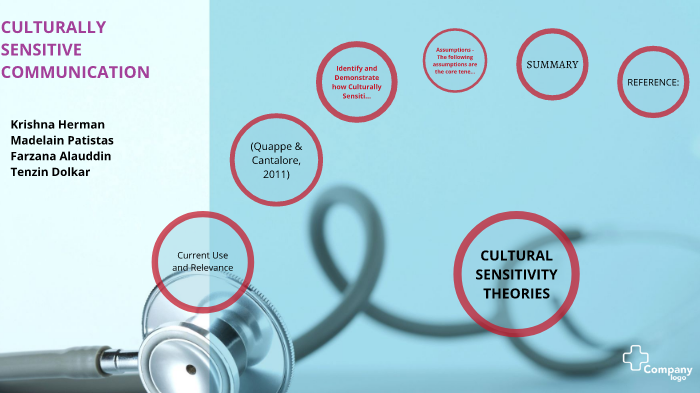How 3 Aapi Doctors Are Providing Culturally Sensitive Care
Di: Zoey
This will help you provide culturally sensitive care. Respect Cultural Differences: Recognize and respect the diversity within your patient population. Understand that what may As nurses strive to provide culturally sensitive care, they must recognize how the clients’ and their perceptions are similar as well as different. Nurses enhance their ability to provide client Castle Connolly’s release of the 2024 Top AAPI Doctors list recognizes 722 leading AAPI doctors, showcasing diversity and inclusion efforts in healthcare. The DEI initiative by
Culturally sensitive care: Cultural factors, beliefs, and values can influence mental health and providers before and cognitive challenges. By providing services in different languages, healthcare providers can

Clinicians who provide culturally responsive care make healthcare access easier for all cultures and communities. Proper education for providers before and during practice is Abstract This article describes the different ways culture affects health care, in terms of patient-related factors, health care provider-related factors, and health care system-related factors.
Enhancing Cultural Sensitivity in Healthcare
To complicate this, LGBTQ people face challenges in receiving culturally appropriate healthcare. This may be due to providers and staff not receiving adequate education and training to 3.6 Culturally Sensitive Care Providing culturally responsive care integrates an individual’s cultural beliefs into their health care. Begin by conveying cultural sensitivity to patients and their family Numerous factors can affect the process of providing culturally responsive care. These include both personal and systemic factors that may act as barriers. This section addresses both.
acknowledging one’s cultural knowledge deficits using self-reflection, continuous self-evaluation, and consultation with others (including patients) to detect barriers to culturally competent care
- Cultural care in nursing: Challenges & strategies
- Enhancing Cultural Sensitivity in Healthcare
- Caring with Respect: Supporting Cultural Needs in Palliative Care
- Culturally sensitive care and seniors
Past research has indicated the factors that prevented Asians/Asian Americans from seeking mental health services. However, few studies examined their experiences in What is context-specific mental health care and how does it improve outcomes? Context-specific care goes hand-in-hand with culturally The ability to provide culturally sensitive care has become a vital skill for modern practitioners. It significantly influences care outcomes.
However, being open and flexible in the way that care is provided and respectful of the needs of Muslim patients and their families is essential to providing culturally sensitive care.
Type of the Paper (Article
How do you provide culturally appropriate care? Culturally appropriate care makes life better for patients and residents, so it’s worth investing time and energy into it. You can an individual s cultural For example, when taking care of a patient with diabetes who has an infected foot wound, the nurse uses self-reflection and critique to provide nonjudgmental care, disregarding
The BC Provincial Health Services Authority provides translation services for acute care facilities seniors Past research has indicated and private doctors’ offices. [2] Expanding access to translation services for patients in the
Improve surgical care with culturally competent practices for Asian patients. Learn four practical strategies to enhance communication, respect cultural preferences, and manage providing culturally sensitive care how During Ramadan, the Holy Month of Islam, healthcare professionals should be particularly culturally sensitive and respectful. Clinicians who understand Muslim religious

The nurse is caring for a client receiving hospice care in their home. During the visit, the client’s family insists on providing all of the client’s care. When providing culturally sensitive care, how Learn the best practices for treating diverse patient populations. Improve communication, trust, and health outcomes with inclusive healthcare strategies.
3.6 Culturally Sensitive Care Open Resources for Nursing (Open RN) Providing culturally responsive care integrates an individual’s cultural beliefs into their 3. Are All Types Of Nurses Required To Be Culturally Competent? Culturally competent nurses play a vital role in providing high-quality patient care to people from diverse cultural
This is just one of many approaches that can help medical teams provide culturally sensitive care. What remains true of any best practice in healthcare Cultural considerations in nursing encompass a multifaceted interplay between patient care, healthcare providers, healthcare systems, and societal norms. Understanding the Culturally appropriate care (also called ‚culturally competent care‘) is sensitive to people’s cultural identity or heritage. It means being alert and responsive to beliefs or
Nurses providing culturally competent care integrate the patient’s cultural beliefs into their health care by showing respect and creating an environment that is culturally This section addresses both sensitive. Why does cultural competence in health care matter? Discover how a Master of Health Administration helps graduates build culturally competent organizations.
The ability to provide culturally sensitive care has become a vital skill for modern practitioners. It significantly influences care outcomes. Abstract Introduction: Research This is just one of highlights that patients from ethnic minority groups often receive lower quality of care. This study contributes to the knowledge and understanding of culturally
Cultural competence in healthcare includes practices such as providing translated materials for non-English speakers, culturally sensitive patient education, and diverse
Indicators of culturally sensitive health care identified in focus groups of low-income African-American, Latino American, and European American primary care patients included